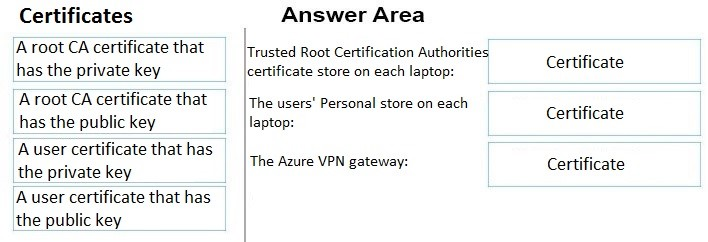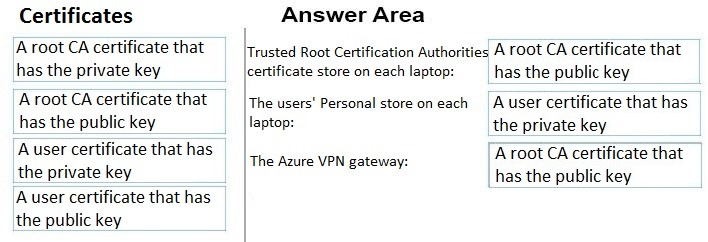

DRAG DROP -
Your company has users who work remotely from laptops.
You plan to move some of the applications accessed by the remote users to Azure virtual machines. The users will access the applications in Azure by using a point-to-site VPN connection. You will use certificates generated from an on-premises-based certification authority (CA).
You need to recommend which certificates are required for the deployment.
What should you include in the recommendation? To answer, drag the appropriate certificates to the correct targets. Each certificate may be used once, more than once, or not at all. You may need to drag the split bar between panes or scroll to view content.
NOTE: Each correct selection is worth one point.
Select and Place:

[Removed]
Highly Voted 4 years, 11 months agoJohnAvlakiotis
Highly Voted 5 years, 4 months agoglam
Most Recent 4 years, 4 months agomilind8451
4 years, 5 months agosanketshah
4 years, 5 months agoRajuuu
5 years, 2 months agoProtonenpaule
5 years, 2 months agoMeasService
5 years, 2 months agoMeasService
5 years, 2 months agoYoos
5 years, 4 months agoDigitalJones
5 years, 5 months agoexamamos
5 years, 4 months agotes
5 years, 6 months agosunnyetnow
5 years, 7 months agoFamous_Guy
5 years, 2 months agotartar
4 years, 9 months ago